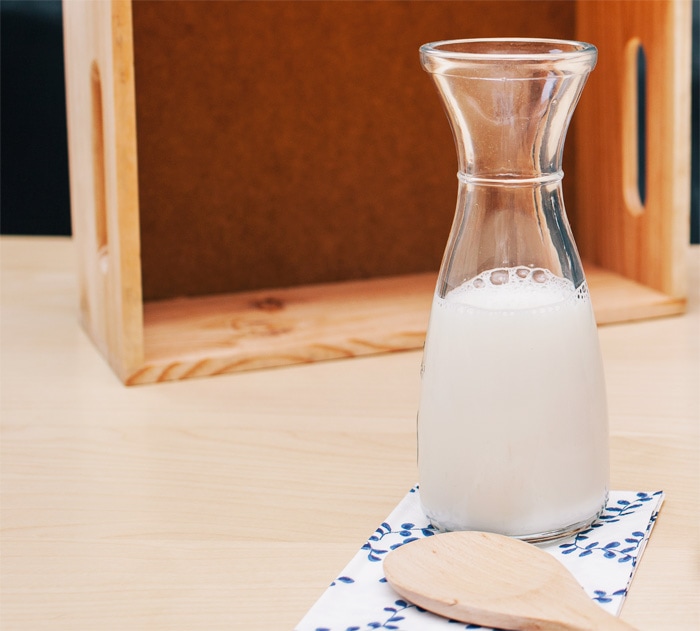
Written By: Gloria Tsang, RD
Title: Founding Registered Dietitian
Alumni: University of British Columbia
Last Updated on:

Did you know that diet pop is actually less healthy than regular pop? Or you may have heard that drinking juice is less fattening than milk. I am going to debunk the top 5 myths about drinks and tell you exactly what you need to know! Let’s begin.

One can of regular pop contains about 135 kilocalories whereas a can of diet pop contains less than 10 kilocalories; some even contain zero kilocalories. Therefore, it is true that diet pop contains fewer calories. However, it is rather difficult to agree that diet pop is “healthier” as there is really nothing healthy about artificially colored and flavored water.
Many people are surprised to learn that a glass of juice contains more calories than a glass of one percent milk. Even two percent milk has only 10 kilocalories more than a glass of fruit juice, which has 120 kilocalories! While juice contains mostly sugar and some vitamins, milk has more nutrients such as protein, calcium, potassium and Vitamin D.
Yes, plain bottled water is water and is calorie-free. Some flavored waters are made with water and real juice. However, many flavored waters are flavored with artificial sweeteners and contain little juice. Tonic water, for instance, has 125 kilocalories per serving. Hence, always read the label and check the ingredient list. If you drink bottled water instead of tap water regularly, make sure it contains fluoride.
It is a common misconception that wine contains fewer calories than beer. It is simply not true. One glass of wine (five ounces) contains about 130 kilocalories whereas one bottle of beer (12 ounces) has about 150 kilocalories. Therefore, wine contains more calories on a per-ounce basis. As a general rule, the sweeter the wine, the more sugar and calories it contains. By the same token for hard liquor; the higher the proof, the higher the calories.
Remember this next time when you are contemplating a second helping of alcohol: calories from alcohol tend to be stored as fat in the abdomen. So, if you drink alcohol on a regular basis (regardless of the kinds of alcohol), watch out for the beer-belly!
Friends have often told me that they quit drinking coffee for the sake of their hearts. Little did they know that the can of pop in their hands has caffeine, too! Caffeine is widely found in tea and canned drinks. Some drinks, such as Jolt and Red Bull, contain as much caffeine as coffee! In general, there is no harm to your health if you drink coffee in small to moderate amounts. However, it is advised that people with high blood pressure and pregnant women limit their caffeine consumption.
By substituting a can of pop or juice with a bottle of water every day, you may lose as many as 15 pounds per year. In addition, walking the stairs for 15 minutes every day, for instance, can help burn about 100 calories. It is that easy!
Remember, you always have a choice. When purchasing a bottle or canned drink, make it a habit to check the Nutrition Facts. Try bringing your own drink to work instead of choosing one from a vending machine with limited choice. This will not only save your wallet but also your waistline.
Alumni: University of British Columbia – Gloria Tsang is the author of 6 books and the founder of HealthCastle.com, the largest online nutrition network run by registered dietitians. Her work has appeared in major national publications, and she is a regularly featured nutrition expert for media outlets across the country. The Huffington Post named her one of its Top 20 Nutrition Experts on Twitter. Gloria’s articles have appeared on various media such as Reuters, NBC & ABC affiliates, The Chicago Sun-Times, Reader’s Digest Canada, iVillage and USA Today.
artificial colors, artificial sweeteners, beer, beverages, caffeine, coffee, diet pop, diet soda, juice, milk, myth, water, wine
Butter or Margarine – Which One Is Better For My Health? (2023 Brands Update)